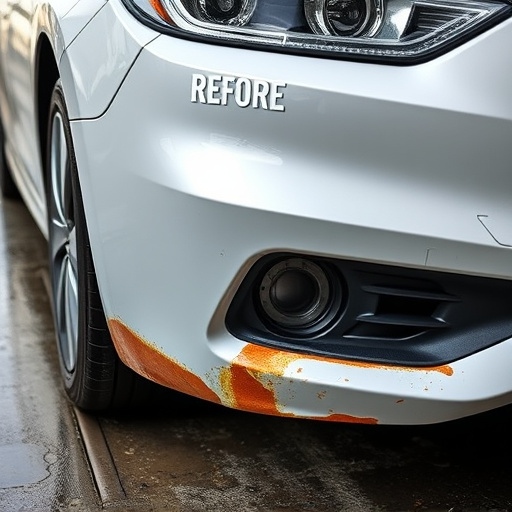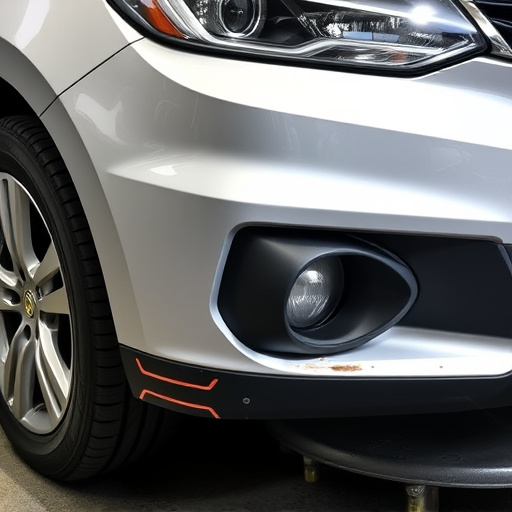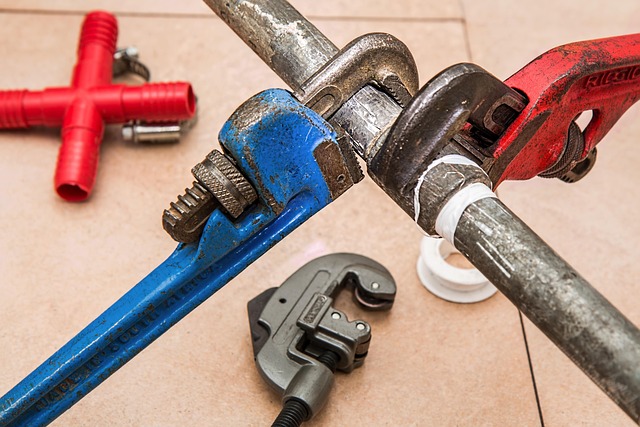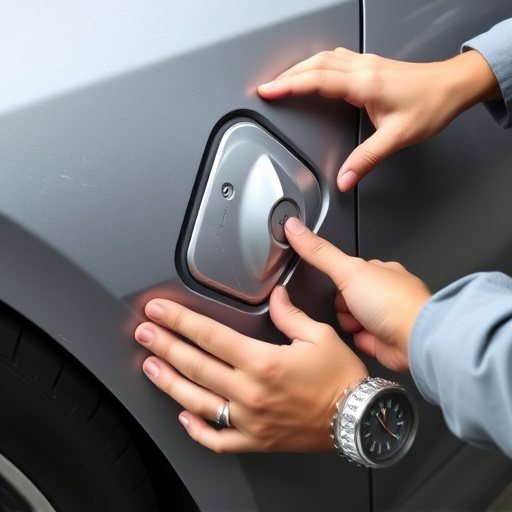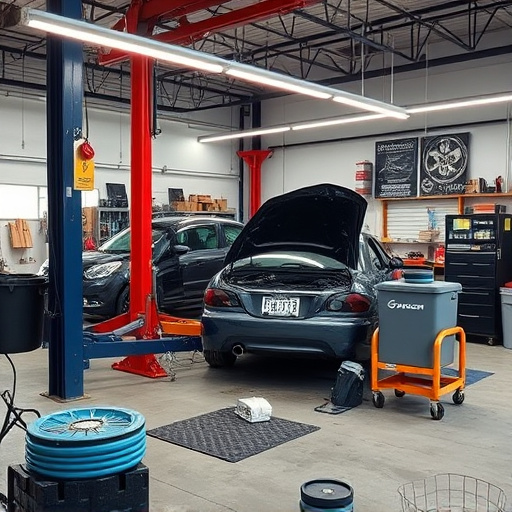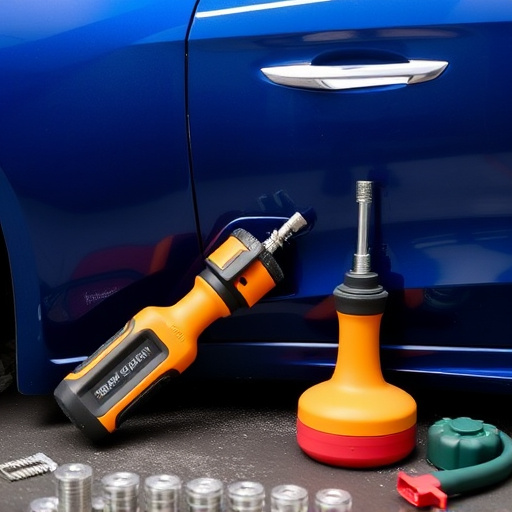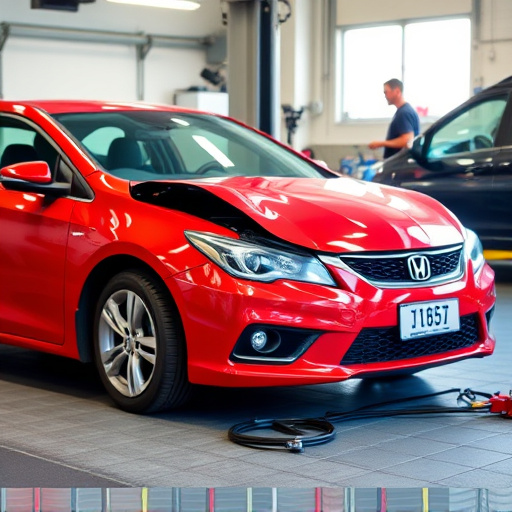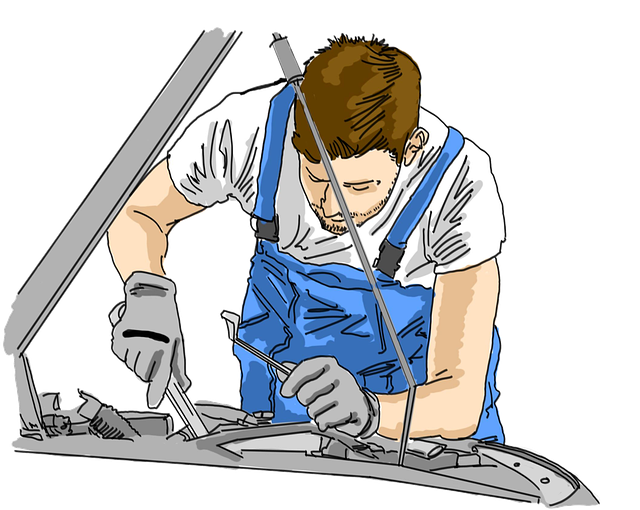Spot welding equipment is a critical tool in modern manufacturing, especially for automotive body shops, enabling precise metal fusion. Certified technicians operate this equipment, ensuring peak performance and minimal defects through expert adjustments based on material and thickness variations. Their skill is paramount for tasks like dent repair or car restoration, adhering to industry standards and minimizing risks. Implementing certified technician standards in automotive service facilities enhances quality control, consistency, and workshop safety by training on equipment hazards.
In today’s manufacturing landscape, precision and safety are paramount. Certified technicians wielding spot welding equipment play a pivotal role in this process, ensuring the integrity of products across various industries. This article delves into the significance of these skilled professionals and the specialized spot welding equipment they use. By exploring their expertise, we uncover how certified technicians drive efficiency, quality, and workplace safety, solidifying their position as indispensable assets in modern manufacturing.
- Understanding Spot Welding Equipment and its Role in Manufacturing
- The Expertise of Certified Technicians: Ensuring Precision and Safety
- Benefits of Implementing Certified Technician Standards for Spot Welding Equipment
Understanding Spot Welding Equipment and its Role in Manufacturing

Spot welding equipment is an indispensable tool in modern manufacturing, particularly within car body shops and vehicle body shops. This specialized machinery facilitates a precise and efficient joining process by using focused electrical energy to fuse metal components together. The role of spot welding equipment spans across various industries, from automotive to electronics, where strong and reliable connections are paramount. In the realm of car paint services and similar workshops, the use of certified technicians operating this equipment is crucial for achieving high-quality outcomes.
Certified technicians ensure that spot welding equipment operates at peak performance, delivering consistent results and minimizing defects. Their expertise allows them to adapt settings accurately based on material types, thicknesses, and desired weld strengths. This precision prevents over-welding, which can lead to material distortion or structural weaknesses, while under-welding may compromise the integrity of the joint. The meticulousness of certified technicians contributes significantly to the quality and longevity of manufactured components in car body shops and vehicle body shops alike.
The Expertise of Certified Technicians: Ensuring Precision and Safety

Certified technicians specializing in spot welding equipment bring an unparalleled level of expertise to any automotive workshop or body shop service. Their skill and training ensure that every weld is executed with precision, adhering to strict industry standards. This is particularly critical when undertaking delicate tasks like vehicle dent repair or intricate car restoration projects.
These professionals are adept at handling the specific demands of spot welding equipment, which requires a deep understanding of metal properties, heat input control, and precise timing. Their safety-first approach minimizes risks associated with high-energy processes, ensuring workshops maintain a secure environment for both staff and clients.
Benefits of Implementing Certified Technician Standards for Spot Welding Equipment

Implementing certified technician standards for spot welding equipment brings numerous advantages to any automotive service facility, including auto repair shops and specialty centers for automotive collision repair. By ensuring that technicians are properly trained and certified in using this crucial equipment, shop owners can expect enhanced quality control and consistency in their work. Certified technicians are more likely to adhere to the latest industry standards and best practices, resulting in superior welds that meet or exceed manufacturer specifications.
Moreover, establishing these standards contributes to increased safety within the workshop. Proper certification includes understanding the potential hazards associated with spot welding equipment, such as arc flash and electrical risks. Trained technicians know how to operate the machinery safely, wear appropriate personal protective equipment (PPE), and follow strict protocols for maintaining a secure work environment. This reduces the likelihood of accidents related to equipment misuse, which can be particularly hazardous in close quarters like an auto repair shop or automotive collision repair center.
In conclusion, certified technicians specializing in spot welding equipment are indispensable in modern manufacturing. Their expertise ensures precise, safe, and efficient operations, enhancing product quality while minimizing risks. By adopting standardized certification for spot welding equipment, manufacturers can improve productivity, safety records, and overall operational efficiency. This article has highlighted the critical role these professionals play, underscoring why prioritizing their training and certification is essential for any manufacturing sector aiming to stay competitive in today’s market.
